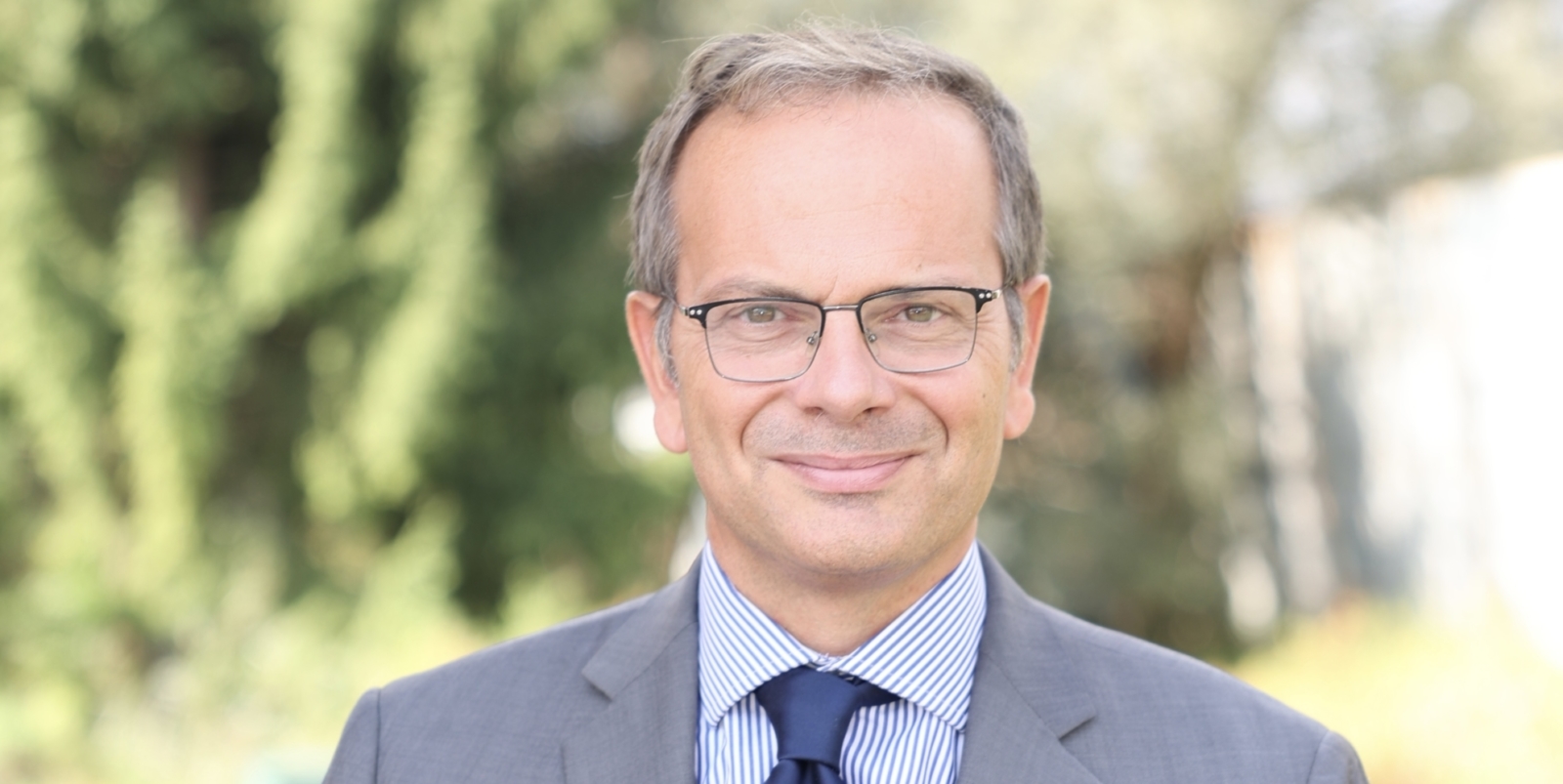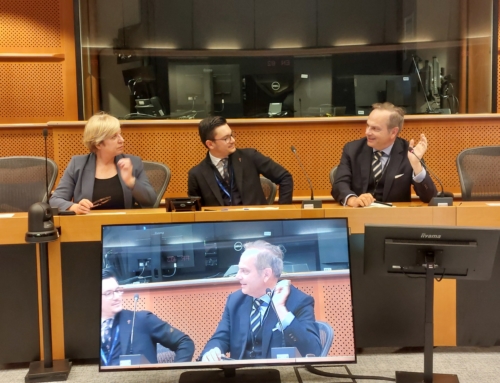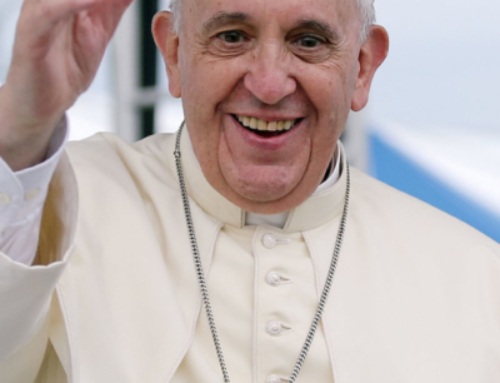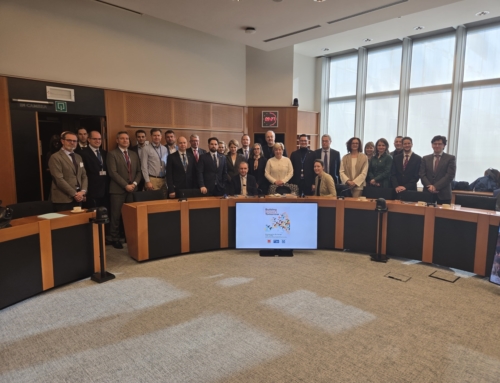Brussels, 25th June 2024
NB: This is a translated version of an interview in Spanish conducted by Pablo Gines at Religion en Libertad, published on 19th June 2024.
FAFCE (www.fafce.org) is the Federation of Catholic Family Associations in Europe, an organization founded in 1997 to bring the voice of the family to European and international institutions and also to inspire the development of family networks. It has 34 member organisations from 20 countries (including 3 in Spain), has a participatory status in the Council of Europe and is part of the European Union’s Platform for Fundamental Rights. It is also a candidate to be part of the ECOSOC (Economic and Social Council of the United Nations).
FAFCE is based on the Social Teaching of the Catholic Church and promotes the beauty of the family, its richness and the dignity of each of its members. Its General Secretariat is based in Brussels. Catholic associations for the defense of the family are encouraged to coordinate in Europe through FAFCE.
The elections in the European Parliament imply a significant change in the composition of political forces. The liberal parties, little interested in family politics, have been weakened. The European People’s Party and the alternative right have grown. There are many challenges and issues to raise with politicians, many of them new to the European Parliament (after the elections, half of the MEPs are usually new to the chamber).
In an open letter to the new MEPs, FAFCE has proposed 5 priorities:
– Demography
– The family as an investment
– Work-family balance
– Child protection
– Integral ecology
Vincenzo Bassi, President of FAFCE, has answered questions from Religion en Libertad about how the defense of the family is in the European institutions.
ReL: Are there anti-family lobbies in the European Parliament and other European institutions?
VB: Yes, they exist. And they are very powerful. We have seen a lot of their influence and coordination in Brussels. They are also present in the Member States. Many of these organizations present themselves in the name of freedom and individualism, but they promote relativism, the division of the family and the identity crisis of the human person. We know that they have many resources and are many organizations. In size, only in human capital [workers and collaborators] they have up to 10 times more than the FAFCE.
ReL: What are these anti-family lobbies looking for?
VB: Divide and conquer. They seek to divide us, starting with the family and continuing with the division of each one, of our own identity and body given by God. They want to transform man into a mere consumer, an idea that confronts the popular vision that is based on the family.
ReL: In Spain there are pro-family associations, parents’ associations, Christian associations… what can they do to be more effective at the European level?
VB: It is essential to be present in Europe and to have a voice. It is very good that pro-family associations are very present in their field, in their country, but it is not enough, we also have to be here in Brussels. FAFCE has this task of representing them all. We already have three Spanish associations that are part of our Federation with observer status: Foro de la Familia (Family Forum), Enraizados en Cristo y la Sociedad (Rooted in Christ and Society) and the ACdP (Catholic Association of Propagandists). The latter association has just joined and expects to join FAFCE as a full member next year. We are very proud to represent them all.
ReL: There are people who think that Europe and its laws are irrelevant…
VB: During the campaign it has been said that today most of the laws of a country come from Europe. Europe has a real impact on our day-to-day lives. Before, it was only in matters of exclusive competence of the EU. Now, increasingly, we are getting into swampy terrain, touching on issues of national sovereignty, including moral and ethical issues. This is very dangerous.
The most obvious case was the proposal by many parties, including Spain, to ask that abortion be inscribed as a right in the European Charter of Fundamental Rights [read here about that vote]. Legally we know that this is not possible. But, today, it seems that political consensus rules.
“We need Europe, but a Europe anchored in its popular origin,” says Vincenzo Bassi.
ReL: Some Christians look at the United Kingdom and wonder if it would not be better to leave the European Union…
VB: The answer is not to be “against Europe”. We need Europe, but a Europe anchored in its popular origin, which speaks to its communities. We do not want a Europe that only creates rules and laws that are not understood by the people. But we do want a Europe that applies subsidiarity and that unites its communities. What is missing is the popular spirit that inspired the founding fathers of the European project. Thus, we distinguish between populism and popular spirit. ‘The people’ does not mean individuals, but communities of families.
ReL: Are you afraid in FAFCE that European regulations will be used to limit the free debate of ideas about the family?
VB: There is no need to be afraid. You have to be astute and, above all, tireless. We cannot rest on our laurels, because political correctness can take away our freedom. Freedom of expression, religion and conscience is something that we are forced to defend on a daily basis in theory and practice. That is why we have to talk, and talk a lot. From respect, but also from the truth.
ReL: The document Europe Be Yourself of the European bishops and the Conference of Churches (CEC) ask the EU for a regular dialogue with the churches (Lisbon Treaty, 3,17), because they are neither invited nor listened to…
VB: Yes, we must insist with all the political groups, asking them to respect this institutional dialogue, without exception. We must ask for coherence with the “respect for diversity”. Pluralism must be defended. This is essential.
“I believe that, with today’s globalism, we Christians are the only true guarantors of pluralism: where everyone agrees, we are different. And topics such as life and family are good examples.
“We must continue to be present and trust. I would suggest that, not to cease to be, even if that requires resources. For this, the Churches need the support of Christian families in Europe. Each one of us has to convince ourselves of this need and each one of us has to do our bit.
ReL: What is the worst an MEP can do against the family?
VB: The worst thing a deputy can do is not talk about the family with truth at the centre. The essential role of the family in society must be recognized. We cannot talk about children as if they were isolated islands. We cannot talk about solutions if we do not talk about the family, which is the basic cell of society.
“We cannot talk about human dignity or workers’ rights without talking about the family. The same with loneliness, digital change, ecology and mental health. The family is the centre and without the family there are no solutions. Therefore, if we ignore the family, we ignore reality. We talk about the family with everyone who wants to listen to us, without filters.
ReL: What can digital newspapers, blogs, influencers, podcasts, youtubers, etc. do for the family in Europe?
VB: They can do a lot by talking about the family. The family is the fundamental basis of society. It is not an ideology, it is a reality. We need the media to give prominence to the family. Family networks promote solidarity between generations and avoid the pandemic of isolation that we have in our societies.
I encourage those who work in the media to contact our office to use our experience, raising the voice of the family in this important time.
CHALLENGES OF THE FAMILY IN EUROPE according to Vincenzo Bassi, president of FAFCE:
– Demographic winter: “We are freezing in a demographic winter. Birth rates have plummeted, and the loneliness pandemic has spread across the continent. We need our European institutions to devote resources and human capital to understanding its root causes, as well as investing in a demographic spring for the continent. Without intergenerational solidarity, we cannot begin to meet the many challenges before us. To do this, priority must be given to families and children, without whom there is no future.”
– Defend Sunday, the common day of rest: “It is possible to have a Europe in which workers are productive and can also enjoy valuable family time. Mothers and fathers need a balance between work and family life, for the sake of their children, themselves, and society at large. Pregnant mothers, in particular, should enjoy legal protection and have the possibility to put their creativity and entrepreneurship into practice, in addition to motherhood. The right to disconnect must also be promoted, establishing Sunday as a common day of rest.”
– Ecology for the family, not against children: “The problem is not children, but consumerism. There is no ecology without a person; there is no person without a family. Therefore, there is no ecology without families and communities of families at the heart of the transition.”







